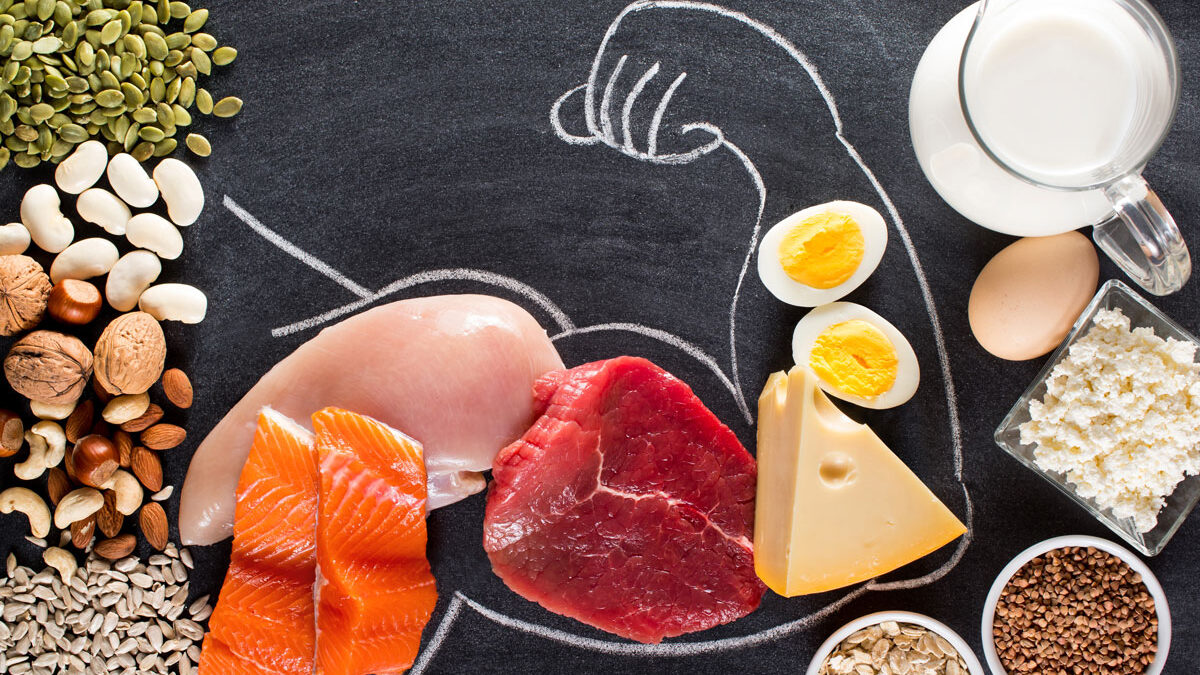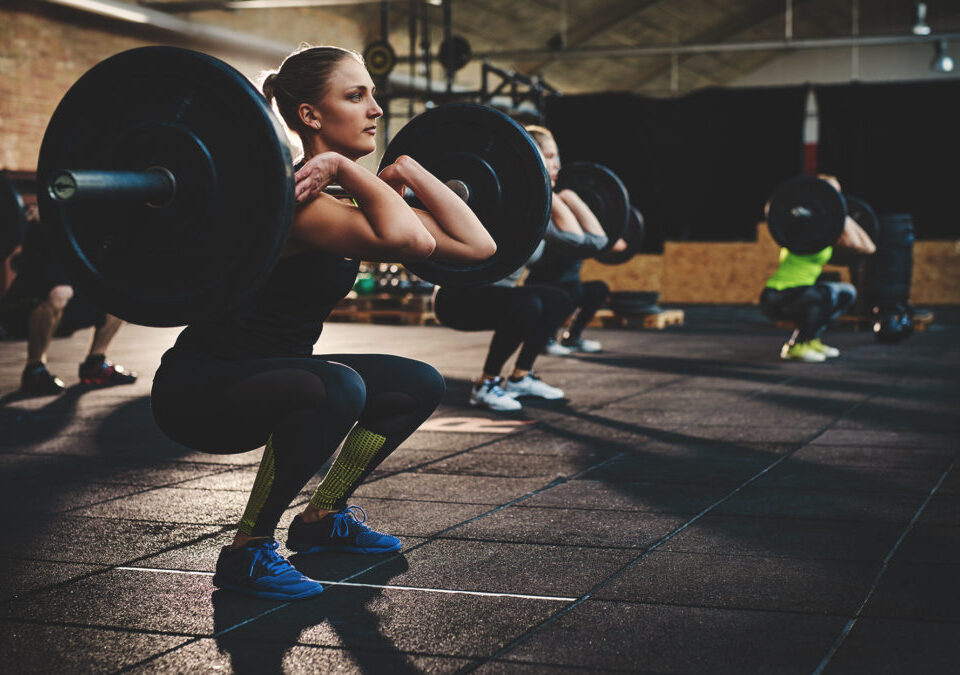
Resistance Training: The Key to Healthy Aging and Fending Off Sarcopenia
December 5, 2023
Sleep Routine Tips for a Restful Night
January 8, 2024The Power of Protein: Why We Need It, How We Use It, and Daily Intake Recommendations
Protein is often hailed as the building block of life, crucial for the growth and repair of tissues, but its significance goes beyond mere muscle development. In this post, we'll delve into the fascinating world of how the body utilizes protein and explore the recommended daily protein intake for optimal health.
Functions of Protein
Proteins play a multitude of essential roles in the human body, participating in a wide range of biological processes. Bear with me as we cover 10 of the other vital roles proteins play in addition to muscle development …and don’t worry, relatable examples are included.
- Enzymatic Activity
- Many proteins function as enzymes, facilitating and accelerating biochemical reactions in the body. Enzymes are crucial for processes such as digestion, metabolism, and energy production.
- Structural Support
- Proteins are fundamental components of the body's structure, providing support and integrity to cells, tissues, and organs. Examples include collagen in connective tissues and keratin in hair and nails.
- Transportation
- Proteins, such as hemoglobin, transport various substances throughout the body. Hemoglobin, for instance, carries oxygen from the lungs to tissues and organs.
- Immune System Function
- Antibodies are specialized proteins that play a key role in the immune system. They recognize and neutralize foreign invaders such as bacteria and viruses, helping to protect the body from infections.
- Hormonal Regulation
- Some proteins serve as hormones that regulate various physiological processes. Insulin, for example, is a protein hormone that regulates blood sugar levels.
- Contractile Proteins
- Proteins such as actin and myosin are essential for muscle contraction. They enable movement in the body, including skeletal muscle contractions and the beating of the heart.
- DNA Replication and Repair
- Proteins are crucial for DNA replication and repair, ensuring the integrity and stability of the genetic material.
- Fluid Balance
- Proteins help maintain fluid balance in the body by regulating the movement of water between blood vessels and tissues. Albumin, a plasma protein, contributes to oncotic pressure, preventing excessive fluid from leaking out of blood vessels.
- pH Regulation
- Buffer proteins help regulate the pH of bodily fluids, ensuring that the internal environment remains within a narrow and optimal pH range for cellular functions.
- Energy Source
- While unsaturated carbohydrates and healthy fats are the preferred sources of energy, proteins can be used for energy production, especially during periods of intense exercise.
Protein's Role in Muscle Maintenance
One of the most well-known functions of protein is its contribution to muscle development and repair. Engaging in physical activity, especially resistance training, creates microtears in muscle fibers. Protein steps in to repair and rebuild these tissues, promoting muscle growth and strength.
In the absence of sufficient protein, the body may struggle to repair muscles effectively, leading to delayed recovery, soreness, and potential loss of muscle mass. Athletes in particular need to pay close attention to their protein intake to support their increased muscle maintenance needs.
Recommended Daily Protein Intake
The amount of protein a person needs varies based on factors such as age, sex, activity level, and overall health. However, general guidelines can provide a helpful starting point for determining daily protein requirements.
The Recommended Dietary Allowance (RDA) for protein is 0.36 grams per pound of body weight for sedentary adults. That means that the average sedentary man should eat about 56 grams of protein per day, and the average woman should eat about 46 grams. However, individuals engaging in regular physical activity, especially strength training, may benefit from higher protein intake.
Athletes or those aiming to build muscle may require anywhere from 0.68 to 1.0 grams of protein per pound of body weight per day. For a 180lb athlete, this is 122 to 180 grams of protein (the difference being the equivalent of about two chicken breasts). Remember though, it is crucial to distribute protein intake throughout the day to support muscle protein synthesis optimally.
Protein is a multifaceted nutrient, playing a crucial role not only in muscle development but in many biological processes. Understanding why we need protein and how the body utilizes it will hopefully allow you to make more informed choices about your dietary habits.
Next Steps
Are you getting enough protein? Want to add more to your daily diet and/or after your workouts? Check out the chart and links below for some great recommendations.

The post-workout period is often considered the most critical part of nutrient timing, and the “anabolic window” is a term that generally represents the 30-60 minutes after exercise that is suggested to be the optimal time to enhance muscular gains and recovery through protein intake. This is why I highly recommend a protein shake to all my clients post-work because it is a fast, easily absorbed, and delicious way to refuel your body with the protein it needs. After many years and many shakes, here are my two favorite options…
Thorne Whey Protein Isolate
https://www.thorne.com/products/dp/whey-protein-isolate-chocolate
Thorne is an industry leader in testing and data-based solutions to improve human performance through premium nutritional supplements. Their products are used by over 100 professional and U.S. National teams and their wide array of supplemental offerings cannot be more highly recommended in the fitness industry. Their products contain what they say without the B.S.
Vega Sport Premium – Plant-Based Protein Powder
https://myvega.com/products/vega-sport-premium-protein?variant=13286145359915
As someone who is lactose intolerant, this is my go-to daily protein as it is plant-based and fully vegan. Chocolate is my recommended flavor.
Shake well and enjoy!
Garrett Withiam, ATC
Assistant Director of Health & Fitness
Personal Training Manager




